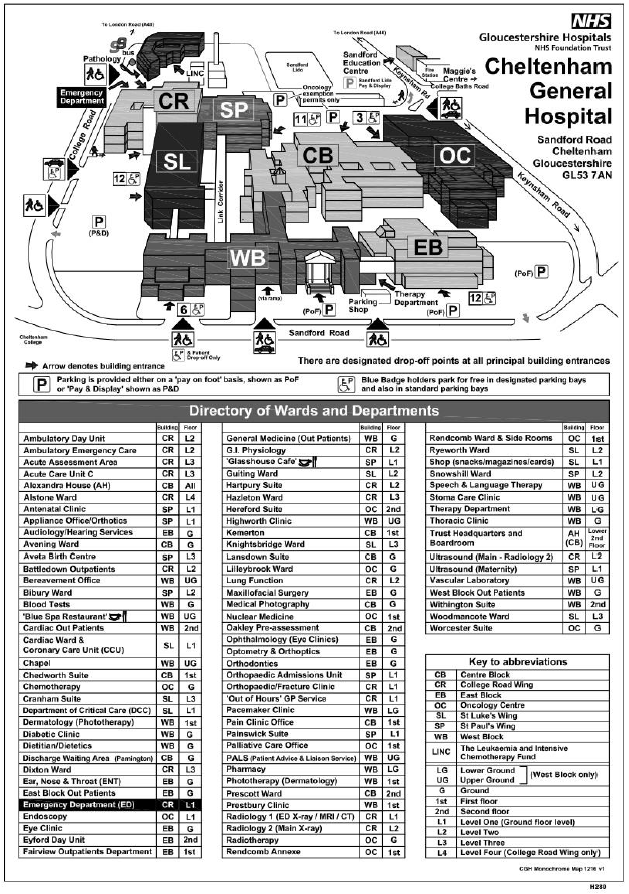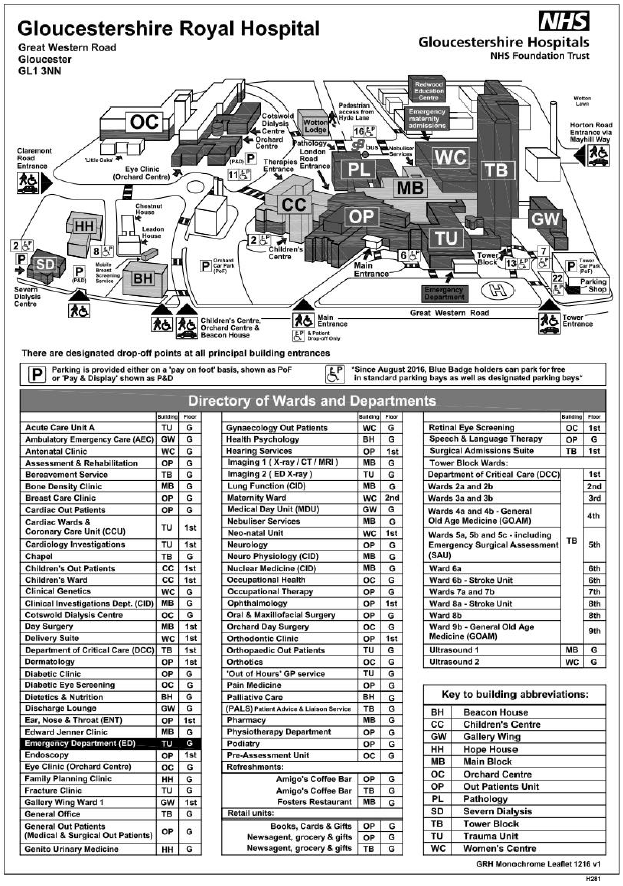Rapid Access Prostate Imaging and Diagnosis (RAPID) Service
This page aims to give you, your relatives and carers information about the Rapid Access Prostate Imaging and Diagnosis (RAPID) Service. RAPID is for men who need investigation for suspected cancer of the prostate. We hope this pagef will answer some of the questions that you or those who care for you may have at this time. This page is not meant to replace the consultation between you and the urology team, but aims to help you understand more about what is discussed.
On this page
-
Why have I been referred to RAPID?
-
What is a PSA blood test?
-
Conditions that can cause a high PSA level are:
-
Other things that may affect your PSA levels are:
-
What is the RAPID pathway?
-
What happens when you are on the RAPID pathway?
-
Review by a specialist urology doctor or nurse
-
What is a prostate MRI scan?
-
MRI results
-
If you have a prostate biopsy
-
What happens next?
-
Key points to remember
-
What is the prostate?
-
Who should I contact for help or information?
Why have I been referred to RAPID?
You have been referred by your GP because you may have presented with some increased urinary symptoms, or your prostate does not feel entirely normal to your GP and/or the result of your prostate-specific antigen (PSA) blood test is high. This could possibly mean that you have prostate cancer. However, there are several other common conditions apart from cancer that can cause a high PSA, so further tests may be needed.
We understand that this may be a worrying time but by being able to speed up the tests, we will be able to determine more quickly whether or not you have cancer of the prostate.
What is a PSA blood test?
A PSA test measures a chemical in the blood, which is released by the prostate. Your PSA level usually increases with age – so the older you are, the higher your normal level of PSA. Your GP has referred you because your PSA level is higher than normal for you, based on your age.
Conditions that can cause a high PSA level are:
- a prostate or urine infection.
- prostate inflammation.
- benign (non-cancerous) prostate enlargement.
- prostate cancer.
Other things that may affect your PSA levels are:
- not completely emptying your bladder, that has been an issue for some time.
- having had an instrument put into the urethra within 4 to 6 weeks.
- sexual activity or bike-riding a few hours before having a PSA test.
What is the RAPID pathway?
- The RAPID service has been designed to reduce the time taken to investigate and diagnose why you have urinary symptoms, a high PSA and/or an abnormal feeling prostate.
- The referral sent by your GP will be reviewed by a consultant urologist and Senior Nurse Specialist. You will then receive either a telephone consultation appointment or an appointment for a face to face consultation in clinic.
- The consultation will allow us to assess you for the appropriate investigations.
- The telephone consultation will last about 20 minutes and will be with a senior urology specialist nurse or one of our prostate support workers. You will be asked many questions to gather information about your previous or current health problems. There will also be questions asked that will be specific to your waterworks.
- Questions will also be asked to assess whether it is safe and suitable for you to have a magnetic resonance imaging (MRI scan).
- During this consultation the specialist nurse will give you information about what to expect over the next few weeks.
- If a MRI scan is recommended this will be performed before we see you in clinic. You will receive an appointment by telephone call and or letter from the Imaging Department to confirm the date and time. It is hoped that you will have the scan within a week of us requesting it.
- Following your scan, you will receive a telephone appointment to discuss the results and next steps.
- If the scan looks normal, there is a high chance that your prostate does not contain any concerning cancer cells. If this is the case, we will arrange to see you face to face in clinic to discuss management of your symptoms or we will write and advise your GP. We will normally not advise a biopsy if the MRI result is normal.
- If there is anything suspicious or of concern, we will then advise that you have a targeted biopsy.
- We aim to carry out all of the tests and discussions within about 5 weeks. Please note that there are occasions that this may take longer than 5 weeks.
What happens when you are on the RAPID pathway?
You may have up to 4 separate appointments. The appointments will take place in the following order:
- Telephone or face to face clinic review with a Urology Specialist Nurse or a Consultant Urologist.
- Prostate MRI scan (if needed), with telephone appointment to discuss the results.
- Prostate biopsy (if needed).
- Clinic review with the consultant or a member of the urology team, with the result of the MRI and biopsy.
Clinic reviews and biopsies will take place at Cheltenham General Hospital. MRI scans may be at either Cheltenham General or Gloucestershire Royal Hospital. It will be made clear which department you need to attend for each appointment. There are maps at the end of this information page showing each location.
Review by a specialist urology doctor or nurse
When you have your telephone appointment or your first face to face clinic review with the urology team, please feel free to have a relative or friend with you.
You will be asked questions about your symptoms, medical history, medical background and medications. PSA testing and results will also be explained in more detail. Please bring with you a list of all your current medications.
What is a prostate MRI scan?
A magnetic resonance imaging (MRI) scan uses magnetic waves to produce images of the body. It does not use X-rays or radiation. A prostate MRI takes images that are able to show us any suspicious areas of the prostate that might be cancerous. The MRI scan appointment will take up to about an hour to perform. You will also receive a separate MRI information leaflet explaining some of the risks of the test.
So that the MRI images are clear you may have an injection of a contrast dye called gadolinium. You will be asked to lie very still on your back on a couch for about 30 to 40 minutes while the scan takes place.
MRI results
The MRI results are usually sent to the specialist urology doctor or nurse about 1 to 2 weeks after your appointment. The images will be reviewed by the consultant urologist and specialist nurse. The decision to proceed with a prostate biopsy will depend on the findings from the MRI and your own choice. If there is a suspicious area, we will normally recommend a prostate biopsy as that is the only way to confirm whether the suspicious area is cancerous or not.
If you have a prostate biopsy
This is a very accurate form of biopsy (called a transperineal targeted biopsy) which takes about
20 minutes. You will be asked to lie on your back on a couch during this test. Your legs will be held up in supports. Very small samples of tissue will be taken from your prostate using a fine needle following local anaesthetic injections to numb the area. You will be awake throughout this procedure.
You will also receive a separate information leaflet explaining the biopsy procedure, the common and rare side effects and the problems that can happen after the procedure. On the day of the biopsy the specialist urology doctor will explain exactly what will happen and answer any questions that you may have before asking you to sign a consent form.
You will usually be at the hospital for 1 hour on the day of the biopsy.
What happens next?
The results of the biopsies and MRI will be reviewed in a multidisciplinary team meeting (MDT). A follow-up appointment will be arranged for you at the prostate clinic where the results, possible treatment options, if necessary, or further care and investigations will be discussed.
Key points to remember
- You can bring a relative or friend along to support you.
- Bring a list of your current medications.
- Eat and drink as normal on the day of your appointments, unless you are advised otherwise.
- Take your medication as usual apart from blood thinning medications (please see below).
Before a biopsy it will be necessary for you to stop taking any blood-thinning medication such as clopidogrel, warfarin, heparin (or heparin-like substances), apixaban (Eliquis®), dabigatran (Pradaxa®), or rivaroxaban (Xarelto®).
The urologist recommending this procedure should assess your risk level (low or high) for thrombosis or stroke while you are not taking the blood thinners and advise you on how to manage your medication in the week before and 2 weeks after the procedure.
- Rivaroxaban or apixaban - patients should stop these 3 days before the procedure (take the last dose 4 days before the procedure date).
- Warfarin - patients should stop taking this medication 5 days before the procedure (take the last dose 6 days before the procedure date).
- Patients taking clopidogrel or aspirin 300mg should stop taking these 7 days before the procedure (take the last dose 8 days before the procedure date).
- If you are taking aspirin 75mg, you do not need to stop this medication.
If you receive an appointment for a prostate biopsy and the blood thinning medication has not been discussed with you, please call the Urology Department at least a week before your procedure date. You need to remind us that you are taking blood thinning medication that requires special management around the time of the biopsy. This should have been discussed with you over the phone at the time your appointment was made.
If you have any questions, please call your consultant’s secretary. They will speak to the consultant or senior specialist urology nurses who will then call you back if required. Continue to take aspirin 75mg as normal.
What is the prostate?
The prostate is a small gland near the bladder. It is present only in men. The prostate produces fluid that forms part of the semen and helps nourish sperm. When you empty your bladder, urine flows through a tube called the urethra. The urethra passes through the prostate before reaching the penis (within the PDF below, see diagram on Figure 1: Diagram of male lower urinary track and reproductive organs).
Who should I contact for help or information?
If you have any questions or concerns, please ask a member of staff. It may help to write down your questions and concerns as you think of them so that you have them ready. Please do not hesitate to ask if you think you have been forgotten or have waited too long to be seen.
RAPID Prostate Nurse Specialist
Tel: 0300 422 2950
Monday, 8:30am to 12:30pm
Tuesday to Thursday, 8:30am to 4.30pm
Friday, 8:30am to 1:00pm
Pathway Co-ordinator
Tel: 0780 091 9460
Monday to Friday, 8:30am to 4:30pm

